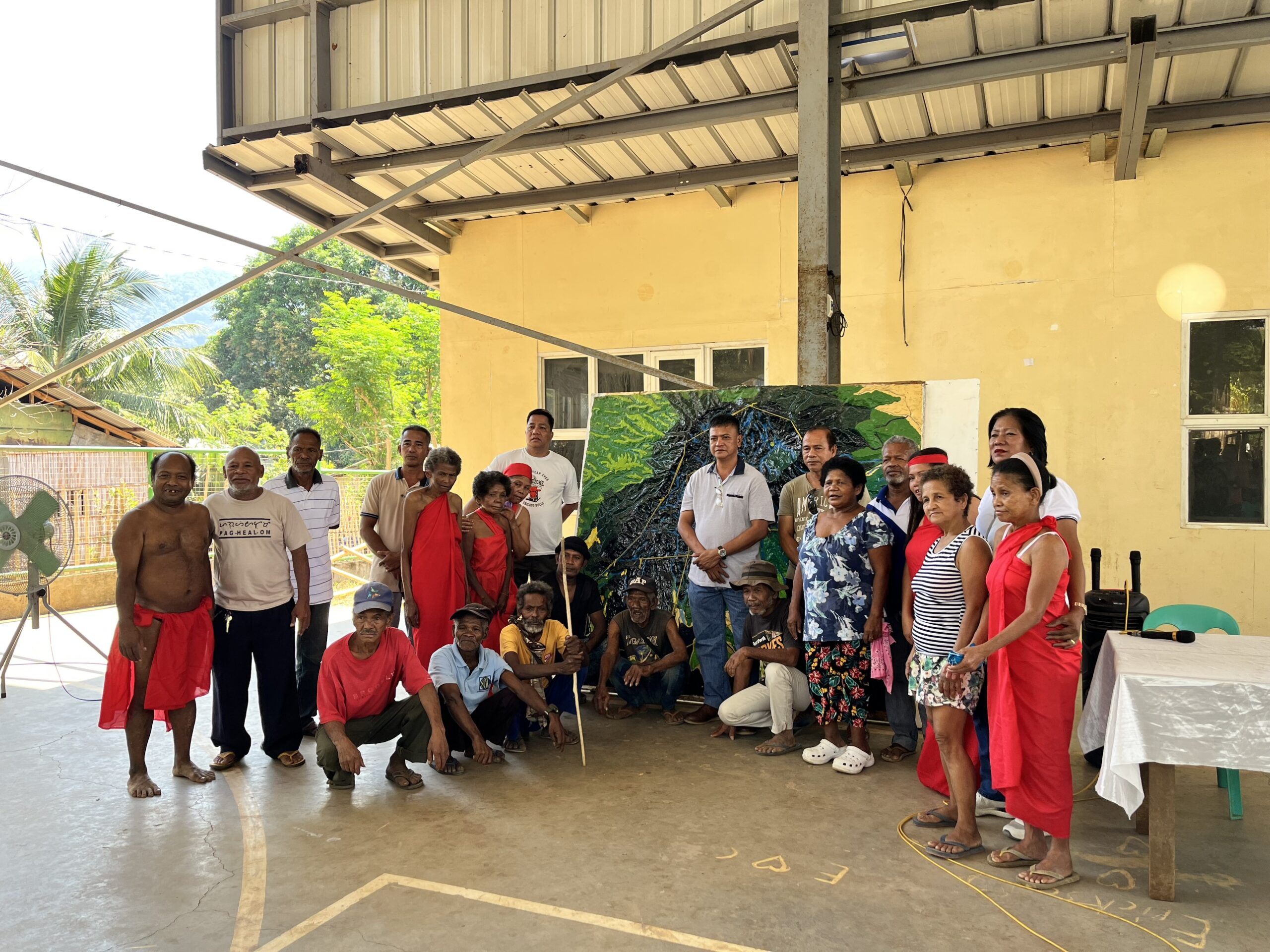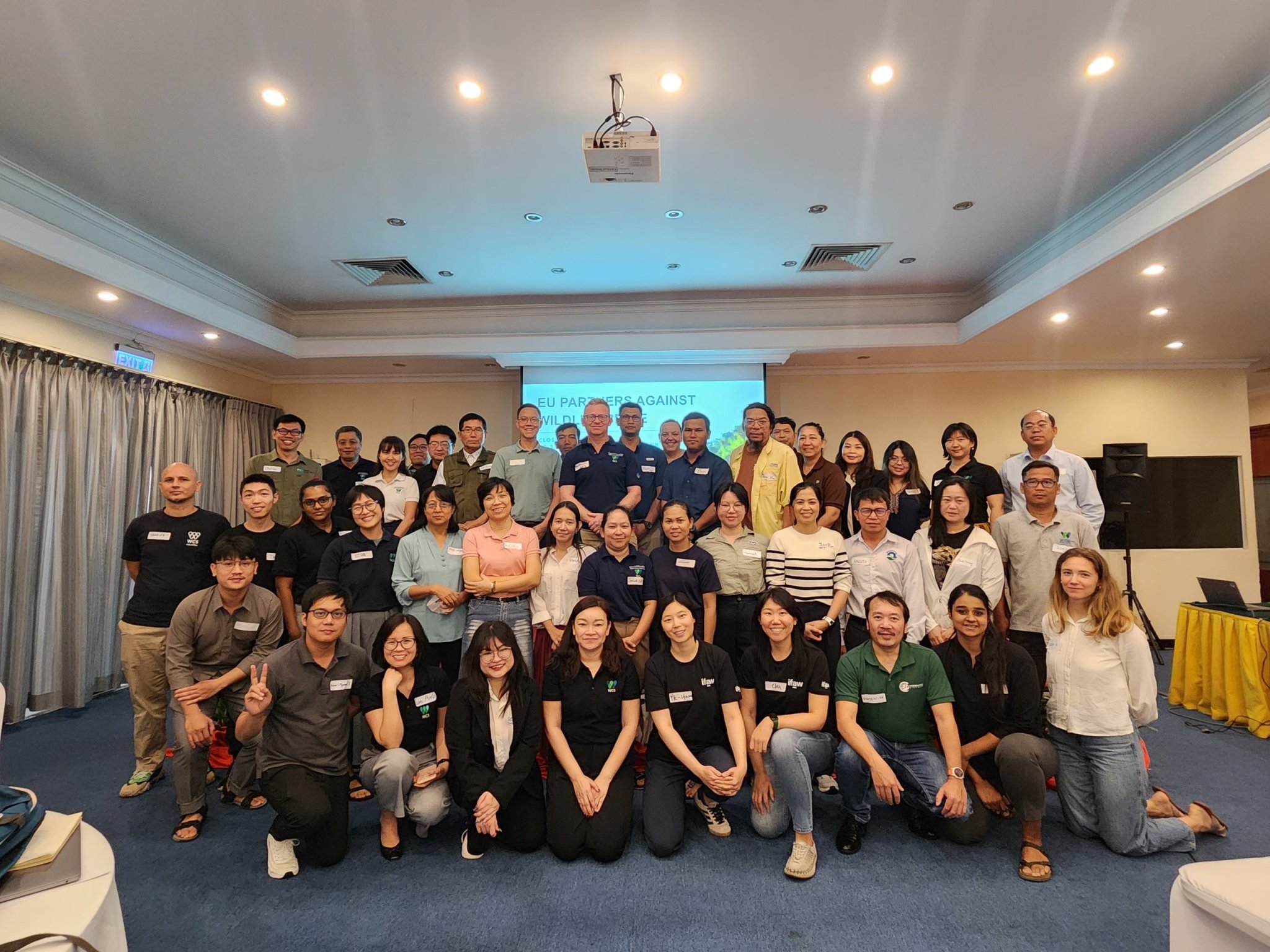In order to create an open space for discussion and explore directions in the trend of sustainable development within the business community, Forbes Vietnam is organizing the THE GREEN GROWTH FUTURE development conference. The conference gathers experts and leaders from businesses leading the market to discuss current topics on low-carbon economies, climate change mitigation, and the path toward sustainable development.
PanNature Members: Use code REF for a 30% discount (apply for the standard ticket)
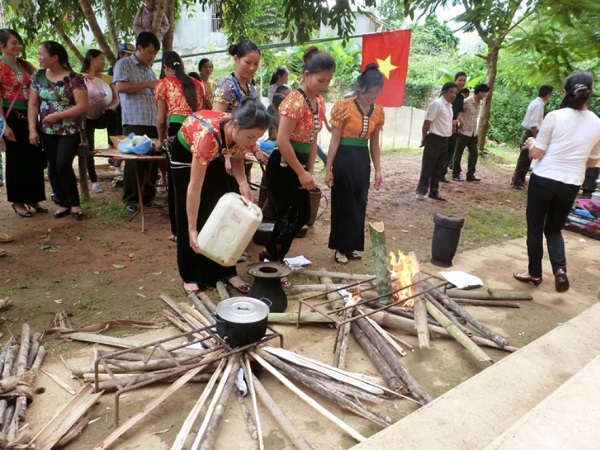
Using Participatory Development Communication Approaches for Empowering Ethnic Women in Sustainable Forest Management in Viet Nam
Like in many countries, women’s roles in Viet Nam’s rural communities is dictated by their tradition of child rearing and household management. Despite their daily interaction with the forests for their families’ subsistence and livelihoods, rural women often have little influence or role in their community’s forest management programmes. Their lack of skills and knowledge often render them powerless in decision-making processes within their communities.
Viet Nam’s current regulations prohibit any forest product extraction in protected areas, limiting the non-timber forest product (NTFP) livelihoods for local communities. Lack of proper outreach and awareness raising on relevant regulations and alternatives for livelihoods pose serious challenges for rural women in particular, and communities in general, especially for those with very limited resources of their own. This is especially the case for communities who live around Xuan Nha Nature Reserve (NR) in Son La province of Viet Nam, home for Thai, Muong and H’Mong ethnic groups who have no legal rights to access forest resources inside the protected area. Such restrictions put stress on the women and community members to be able to support their families.
Realizing that ethnic women in Xuan Nha NR can play a key role in addressing this issue, an NGO, PanNature, developed a project to improve the role of ethnic women in forest management and promote fair access to forest resources in Xuan Nha Nature Reserve. The project worked with two women’s unions (WU) in Xuan Nha and Chieng Xuan communities that placed the women as key drivers to advocate for sustainable management of their community’s forest resources. The project, using participatory approaches, aimed to enhance knowledge and capacities of the women to enable them to influence and take a lead in exploring alternative livelihood opportunities for their families and communities.
Using PDC to help ethnic women’s unions to assess capacity needs
Almost half of the ethnic women in Xuan Nha and Chieng Xuan communities have never had formal education and are illiterate. However, by enhancing their capacity and knowledge, women’s confidence to influence and contribute towards their families’ decisions and communities may be strengthened.
Using the PDC approach, the project’s first step was to conduct a needs assessment and consultation with local women to assess their capacity and involvement in community forest management, particularly their use of NTFPs. The self-assessment was conducted through focus group discussions and qualitative interviews with WU representatives, where they scored their levels of capacity and participation in forest management. The results showed the women ranked low in most aspects of management such as financial planning and meeting skills including presentation skills, asking questions, providing feedback and organizing meetings. Their lack of confidence resulted in them being underrepresented in forest management planning processes, leading to decisions that put them at a disadvantage.
Identifying these areas for improvements, the women from the two WUs requested the project to support them in a capacity building programme that focused on (i) sustainable development of NTFPs, (ii) improving participation in forest management and (iii) better community communication strategies. It was agreed that the programme would be delivered through a series of trainings and women-led events that would ultimately enable the women to share information with their communities and improve collaboration with Xuan Nha Nature Reserve authorities.
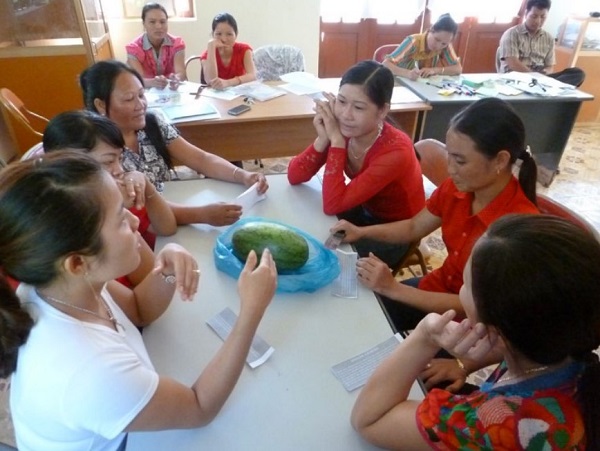
In responding to their needs on NTFP production, the project offered two training courses that helped the women to identify potential forest products for market development. Through drawings and discussions, the participants identified types and parts of plants, sustainable methods of collection, sustainable yields, collection periods and sites. The women chose to focus on and explore the potential of three products – bamboo, forest vegetables and wild honey.
Although most participants had little education, their vast knowledge and familiarity with forests resources enabled them, for example, to develop a chain supply scheme for bamboo weaving production by identifying the source of the bamboo, how and where to procure them, weaving production and target consumer groups for the final products.
The WU members also wanted to be more involved in community forest management to be able to negotiate their rights and access to the forest resources. Using participatory communication approaches and tools, the women discussed issues related to the forest management regulations.
They learned about the different categories of forests, how the mapping system worked and discussed past experiences where conflicts have occurred. Similarly, using role plays, the omen explored the different types of stakeholders involved in forest management. More importantly the women were introduced to concepts of equity and benefit sharing which helped them to understand the different needs and situations that should be considered when managing forest resources. Through the training, the women improved their understanding of the importance of inclusive and balanced management and protection of forest resources.
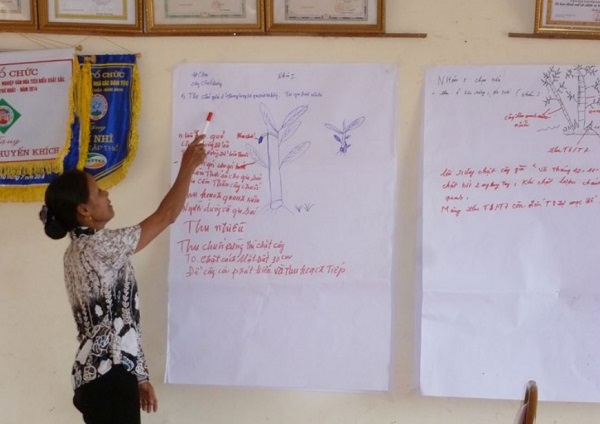
Lessons learned
Post-training, the women became more confident to undertake more proactive roles within their communities for forest management and protection. For example, the WUs approached the Xuan Nha NR Management Board and held two dialogue seminars to discuss access to and extraction of NTFPs from the nature reserve. Both the WUs and the management board agreed to have more women’s participation in the villages’ forest management groups. They also agreed to collaborate on activities related to forest protection such as volunteering as members of forest patrol groups, raising awareness and disseminating information on illegal forest activities in their communities.
In terms of personal empowerment, these women had influenced the power balance within their family circle. As they became involved in the project activities, they gained more confidence to take important responsibilities within their families and to advocate for equal opportunities in education and work, e.g. travelling to other districts to attend a training without their husbands.
They also wanted to share their new knowledge of the potential of NTFPs to their families and communities and organized a small trade fair of forest products that were harvested and produced by two communities. A wide range of NTFPs were exhibited including forest vegetables, weaved bamboo and rattans, wild honey, dried and salted bamboo shoots and traditional herbal medicines.
The WU members were able to practice marketing their NTFPs and communicate effectively with their communities on the potential of forests resources and why they should manage it sustainably.
The women also organized cultural activities to gain more attention from other community members and ethnic groups. They organized a cooking competition between different districts to cook traditional meals using ingredients from the local forests. A cultural performance was also part of the activities and featured traditional dances and costume shows of different ethnic groups, gaining interest from neighboring communities and local media.

By using the PDC approach, the project could strategically identify key stakeholders and empower them to design and implement solutions. The project demonstrated that any intervention program could apply to any stakeholder group regardless of their social status and capacity levels. More importantly, contextualizing the strategies to respond to the stakeholders’ unique needs and situation is key to ensuring sustainable and lasting changes.
Nguyen Duc To Luu, People and Nature Reconciliation (PanNature)
The article was published in “Working paper: Moving from information dissemination to community participation in forest landscapes“, which was jointly developed by The Center for People and Forests (RECOFTC) and the Food and Agriculture Organization of the United Nations (FAO).
The working paper:


